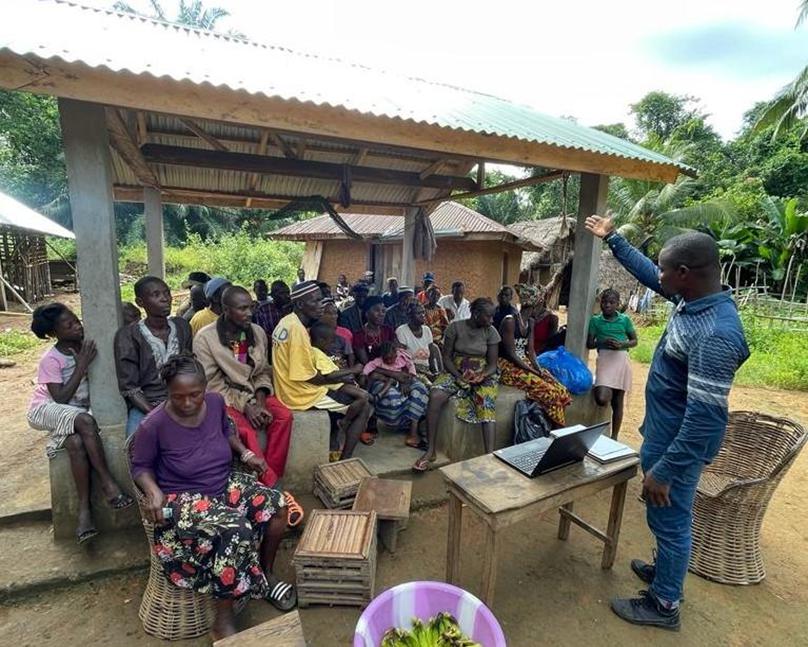Ambrose Bockarie Kanneh
Other projects
3 Aug 2021
Impact of Human Activities on the Population Status of Three Threatened Primates in Jaibui Island, Sierra Leone, Significance for Ecotourism and Livelihood
The planned project outputs will target to generate additional knowledge on the status (distribution, threats, and habitats) of primates and other threatened wildlife species thriving within the Jaibui Island biodiversity conservation area in Sierra Leone to inform management strategies and proper planning for the long-term conservation of biodiversity and community livelihood development at site. The project asks and scope were informed by outcomes of the 1st Rufford Grant and findings from this project will complement the existence evidence to holistically address the many social and environmental inferences deterring progress on biodiversity and conservation success in the project area.

Project inception meeting with stakeholders from the seven adjacent communities of Jaibui Island hosted in Kambama community. © Mikalu Mansaray
The project will use Spatial Monitoring and Reporting Tool (SMART) Software that will be designed to fit the Jaibui Island conservation area for wildlife biomonitoring throughout the one-year life cycle. In addition, Survey and questionnaire will be designed to investigate from the community members the contributing factors to the hunting pressure on primates and other wildlife populations. These will be complemented with well-structured sensitization on wildlife hunting that will protect both community and conservation interest as well as capacity sharing and support on ecotourism services for targeted community members to provide efficient services that can boost the potential of wildlife tourism in the area. The information from the biomonitoring will be used to inform the execution of forest-based tourism intervention and addressing the hunting pressure on threatened wild fauna within Jaibui Island.
The project will create employment for six community members as community bio-monitors and enhance their capacity in wildlife biomonitoring protocols and forest patrols during the project lifetime. Across multiple levels: globally, the project will contribute to Sustainable Development Goals (SDGs) 1, 11, 13, 14 and 15; nationally, the project plan feeds well into national action plans fostering the implementation of the Convention on Biological Diversity (CBD) and its associated Aichi targets thereby contributing findings to mainstream biodiversity conservation into national development plans; and at community level, the project will promote natural resource management with a community led approach and create avenues for the community members to diversify their livelihoods by creating the enabling environment for communities to participate in the design of forest-based tourism packages associated with their natural resources.
Header: Newly constructed ecolodge at Jaibui Island by the Tacugama Chimpanzee Sanctuary. © Ambrose Bockarie Kanneh